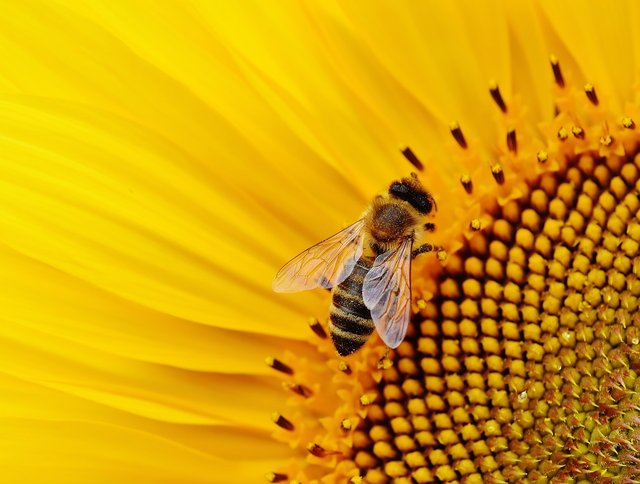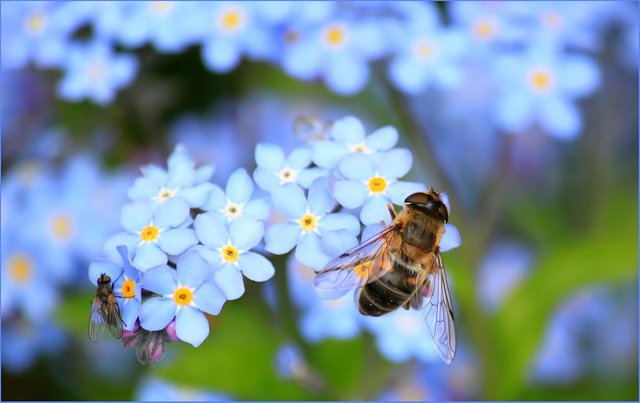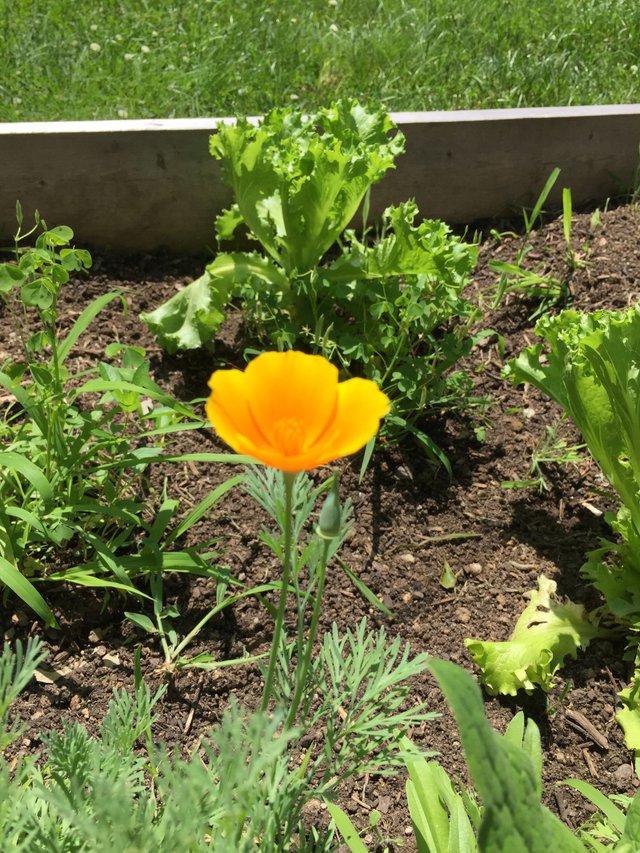Common Pesticides Pose A Great Threat To Bee Populations Says New Study

Widely used pesticides, neonicotinoids, are damaging the survival of honeybee and wild bee populations, according to a recent study.
The results of the study also suggest that there is considerable contamination to entire landscapes from these common insecticides and that there is a cocktail effect to be seen which results from using multiple pesticides.
The results of the recent study have been published in the journal Science and it's credited as being the world's largest field trial of its kind. They analyzed 33 different bee farm sites across Hungary, the UK, and Germany. And the findings suggest that the bees could see their life shortened by roughly 25 percent if exposed to the harmful pesticides.
Bee experts have said that the findings don't surprise them for one moment, this is something that has been talked about for quite some time and a lot of people have pointed to pesticides as a culprit that might be playing a role in the declining bee populations.

The researchers noticed that as the insecticide exposure increased, that the reproductive success of the wild bees suffered dramatically. They noted that they had seen significant negative effects and the findings further add to the notion that there is a lot of harm being posed to bee populations because of the use of potentially harmful pesticides.
Interestingly, two companies (Bayer and Syngenta) that sell products which were being scrutinized in the study, put in $3 million toward the research costs. Though they had no part in designing or conducting the study, or reporting on the results. They've since (unsurprisingly) admitted that they find the results to be a rather “simplistic” interpretation of the data. They still think that their products are safe to be used.
The declining bee population is an issue that has been reported on and studied extensively. Aside from many thinking that pesticides are to blame, some of the other reasons for the decline have been suggestions like industrial agriculture, climate change, parasites and pathogens, and a loss of biodiversity.
It's suggested that more than 700 bee species from North America are headed toward extinction. But not everyone agrees that there is a worrisome decline, some suggest that bee populations are in fact on the rise and that there isn't anything to be worried about and they suggest that the declining rates will eventually rise again. Others say that the whole "beepocalypse" is phony and that it's a scam.
Regardless, a number of initiatives have been implemented to try and provide a remedy to what many believe is a growing issue; like the national strategy that's been created to try and promote the health of honey bee populations.
And for this study, which followed bee populations in various countries for several years--since 2015, they found that for those bees part of hives that were placed on fields which had seeds that were treated with pesticides, that they did worse when it came to surviving through the winter.
A separate study published in the same journal this week, which also sought to investigate bee populations, found that worker bees had shorter lifespans after they were exposed to pesticides like neonicotinoids, and that the bee colonies were more likely to lose their queen.

Pics:
Pixabay
Sources:
http://science.sciencemag.org/lookup/doi/10.1126/science.aan6173
http://www.independent.co.uk/environment/nicotine-based-pesticides-do-harm-bees-major-study-concludes-leading-to-calls-for-complete-ban-a7815371.html
http://globalnews.ca/news/3566277/pesticide-neonicotinoids-bee-population-study/
https://www.theguardian.com/environment/2017/jun/29/pesticides-damage-survival-of-bee-colonies-landmark-study-shows
https://phys.org/news/2016-01-complex-worldwide-bee-declines.html
http://time.com/4688417/north-american-bee-population-extinction/
https://www.washingtonpost.com/news/wonk/wp/2015/07/23/call-off-the-bee-pocalypse-u-s-honeybee-colonies-hit-a-20-year-high/?utm_term=.b9b4bc916c12
https://www.sciencedaily.com/releases/2017/01/170127142923.htm
https://www.forbes.com/sites/henrymiller/2015/05/13/the-new-bee-crisis-is-just-like-the-old-crisis-only-different/#5cea05199bba
http://science.sciencemag.org/content/356/6345/1395
Related Posts:
Scientists Develop Pollinating Drones To Serve In The Event Of Honey Bee Extinction
A Groundbreaking New Way To Watch Over Bee Populations
https://steemit.com/science/@doitvoluntarily/a-groundbreaking-new-way-to-watch-over-bee-populations
Save the bees! I can always tell bee-friendly people the same
I will emtnion this report in my next #steempearls too. Thank you!
bees make every 3rd to 4th meal we consume possible. without them we and our ecosystem is literally screwed..
great post and thanks for making the public aware of this problem!
This is such an important topic. Without the bees, our food chain collapses and the process of pollination and plant reproduction faces dire consequences.
We have known about this for years but I'm glad they're conducting more recent studies on these toxic pesticides.
Here's a study from 2014 linking neonicotinoids to the collapse of bee colonies:
https://www.hsph.harvard.edu/news/press-releases/study-strengthens-link-between-neonicotinoids-and-collapse-of-honey-bee-colonies/
This isn't a widely discussed topic, but it should be.
Bees 🐝 are an extremely important part of the ecosystem. I think it was Albert Einstein said if all bees died out the human race would only last for about another 6-7 years. Cheers for your article mate mike
@DoItVoluntarily... Thank You 4 sharing this information and very important issue because bees are an integral link to many of the fruits & vegetables we eat.
Had a Beekeeper, who also had a PhD, stay on my sailboat for almost year and
Boy, did I learn a lot from him. He had over 100 Bee hives at one point and then gave most of the hives to his Sister who now has over 100 Bee hives here in Florida.
Thanks again DIV 4 sharing... Have a Great Weekend !!
Quick Note: DIV... You inspired me to create a similar post. Also included Your Post link within my newly created Post. Thank You @DoItVoluntarily 4 Your ongoing Posts, they truly are inspirational & important.
Bayer, who helped fund the study and are one of the biggest producers of the pesticides the researchers say may be harming the bee's, are down 3.5% in premarket trading. Presumable on this report and the potential blow back from it.
And I'm sure it's not just the bee populations, it will trigger a chain of reaction leading to the depletion of various species. The spraying has to stop! (Side Note: My Free Cheerios Flowers are starting to come up :) ... )
haha did you take advantage of their offer? nice!
yes! It was a solid back of assorted seeds, nothing has bloomed yet but they are all coming up!
I'm still in the no bloom stage. However, I also put down some other wild flower seeds, so who knows what is what.
Nice! I can't wait to see what they will look like. Perhaps I will begin documenting their growth and turn it into a post once they've bloomed. Here's to the Bees!
Good idea. Like I said, I could try that, but I wouldn't know which is which. Right now I only have a few flowers and everything else looks like weeds.
We officially have our first bloom! @doitvoluntarily @deanlogic
Nice!
Interesting read, thank you.
Hello @doitvoluntarily
This story made it to the ღ #steempearls of @tabea . Check it out at https://steemit.com/steempearls/@tabea/steempearls-14
The post you share is very interesting. Your post has added my insight into the science and ecosystem of a habitat and the survival of a living thing, especially bees. The survival of an ecosystem needs to be preserved. The use of technology should be maintained so as not to damage the environment in order to balance the ecosystem. That's what I can capture from reading the post. Forgive if my comments are less favorable. I really like your posts. thank you. Best regard